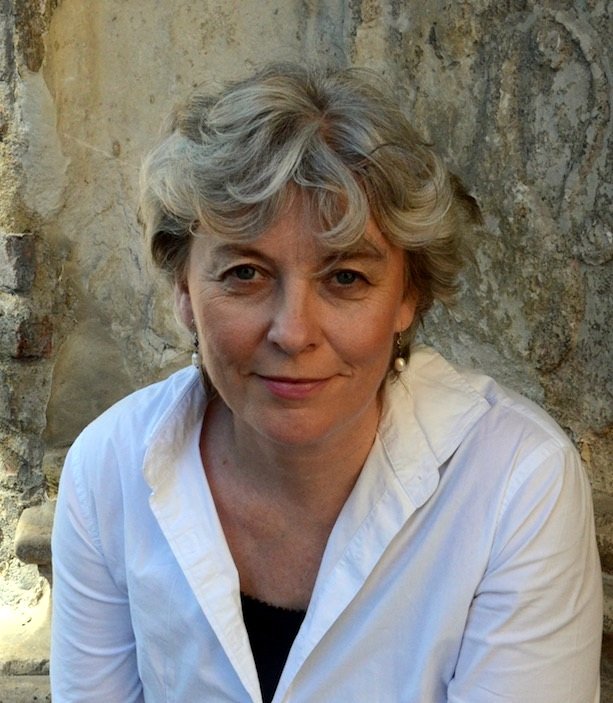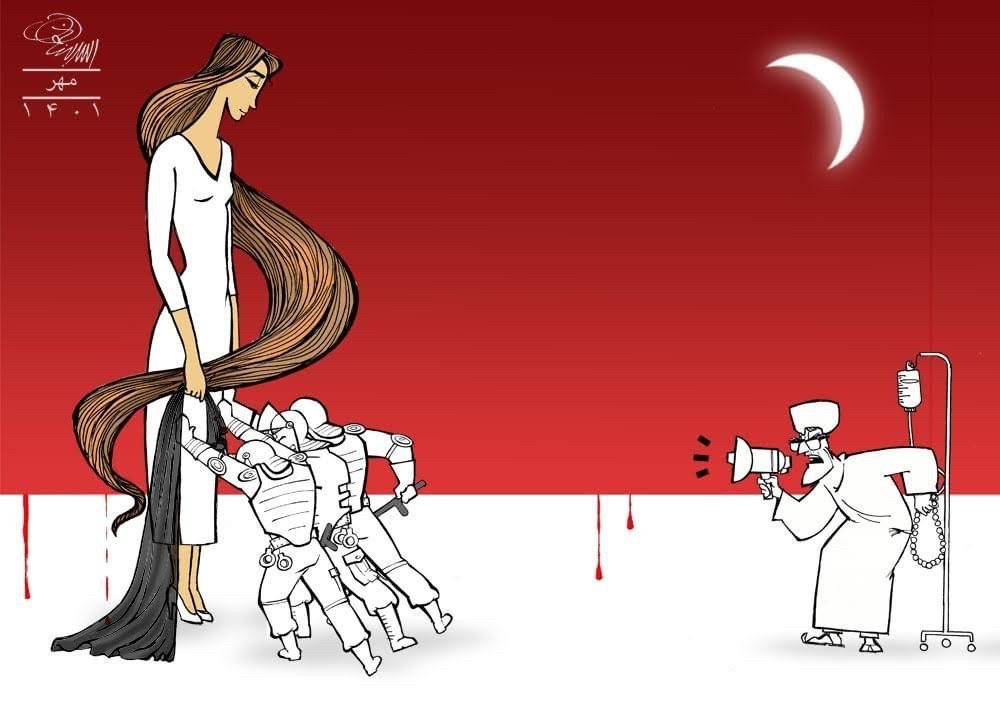
Running for Elections in Luxembourg - We Belong in conversation with Jana Degrott
For their 33rd podcast episode, We Belong had an intimate discussion with their Co-Founder, Jana Degrott, who also counts as one of the youngest elected politicians in Luxembourg and in Europe. Despite the toxicity and backlash she faced as a young woman of colour, Jana is convinced that her place is in politics because of what her presence there represents and as a sign to all those that will follow.


On the relationship between faith and power
Faith and Power is EPER Radio’s 2-part podcast series where they talk to experts about the relationship between religion and politics.

Nyimas Bantaba on Gender Apartheid in Afghanistan
After the Taliban regained power in Afghanistan, girls and women have been increasingly pushed out of public life. Nyima talks to two women human rights activists about the current situation. Their message to the international community is clear: “Be honest with Afghan women. There is a country where, in the 21st century, girls cannot go to school. And the whole world is just watching.”

Watchdogs on monitoring public service media in Hungary
In a new episode of Őrkutyák (Watchdogs) on Civil Radio in Hungary, Marcell Lorincz comments on an article published on March 10th by the Hungarian public broadcaster’s news site. The article, which fails to adhere to public service media standards, presents an interview with the French anthropologist Florence Bergeaud-Blackler, author of the controversial book “Le Frérisme et ses réseaux, l’enquête” (Brotherhood and its networks, the survey).

Hate speech and political ads in Hungary
These days it is almost impossible to scroll through any social media platform without coming across a political ad. How different are these ads from billboards? Why have they become the dominant tools in campaigns? What is the regulatory context? How do they tackle hate speech?

Watchdogs on monitoring hate on social media in Hungary
In this episode of Őrkutyák (Watchdogs) on Civil Radio in Hungary, three experts were invited to discuss the activities against hate speech online. The International Network Against Cyber Hate and two Hungarian NGOs are currently active in a new program to monitor mainstream social media channels. They want to gain data on how well these companies respond to hate-related content removal.

“There Were Not Many of Me” - We Belong in Conversation with Sawsan Chebli
For their 30th podcast episode, We Belong met Sawsan Chebli, a Palestinian-German politician who worked in the highest spheres of power in Germany. Sawsan shared the challenges she faced as a female politician, the hate she received as an outspoken Muslim woman and what motivates her to keep going despite threats and criticism. “Building alliances and sharing our stories is of paramount importance”, she says.

Violence Against Women - Perspectives and the Current Situation in Iran
Over 90 days of Iranian revolution, 90 days of resistance, bravery and civil disobedience against one of the most oppressive states acting with utmost brutality on the streets and in prisons. Activists and journalists in Iran and of course in the diaspora draw attention to the current situation in Iran. Violence against women is a worldwide problem for Iranian women.

Countering and preventing hate towards religious communities
In a special production for Get The Trolls Out!, UK-based community media podcasters Lydia El Khouri, Gloria Khamkar and Chiara Muzzi speak to experts about antisemitism and Islamophobia. Jonny Newton, Head of Government Affairs and External Relations at the UK Community Security Trust (CTS), and Enes Bayraklı, head of the Department of Political Science and International Relations at the Turkish-German University in Istanbul, share their insights.

On Art and Censorship – the case of antisemitic allegations at the documenta 15 in Kassel
This year’s documenta, the most significant worldwide exhibition for curating contemporary art in Germany, has unfortunately been marked by antisemitism allegations that led to obscuring the contested artwork People’s Justice (2002) by the Indonesian artist collective Taring Padi. Was this the right decision? We discuss in this special feature for Get The Trolls Out!

A diversity of voices in and from Iran
As protests in Iran continue and supporters hold rallies around the world in solidarity with the Iranian people, Fred Petrossian, an Iranian journalist, blogger, and researcher based in Europe, is documenting the new and old struggles. Iranians are preparing for a mass protest on the 22nd of October in Berlin.

Our Hair As The Flag
The unified voice of protests from all corners of Iran these days shows a change in the context of Iranian society. A society that, according to the rulers, is dominated by a traditional culture that demands a special covering from women. Yet, traditional women’s coverings are distinctly different from the uniform compulsion of veils (black Chador) and Maghnaeh (a kind of Islamic covering for women that keeps the head and chest covered).

Strategies to counter online hate, especially when directed towards (religious) minorities and vulnerable communities
What is extremism and how does it manifest itself online? Which topics are at the core of anti-pluralistic narratives? Which components of critiques of democratic systems are legitimate? Who is targeted by hate online and what are the possible remedies?

Antisemitism on the Internet and Dark social - How hatred of Jews spreads on the net
Radio LORA in Munich investigated how antisemitism spreads on the internet and enters daily lives. In conversation with experts, researchers and activists, this radio programme and podcast shares insights and resources to curb hate on the net.

Have you ever seen a video of a successful woman with a hijab in the Greek Media?
Mahdia Hossaini from the Greek project Migratory Birds reflects on the impact of media narratives about Muslim women. Her considerations and interviews show to what extent media representation influences public opinion and affects those portrayed in a stereotypical manner. A further confirmation of the vital role that journalists and news media can play in exposing the realities of social injustice, racism, and Islamophobia.

Nyimas Bantaba on the Ukraine Crisis: Discrimination and double standard in the Media and Society
In this second special edition of Nyimas Bantaba for Get The Trolls Out!, show host Nyima Jadama invited Marianna Karakoulaki (Communications Manager at Media Diversity Institute), Jennifer Kamau (activist) and Alexander Gorski (migration lawyer) to discuss double standards in reporting and in welcoming refugees around Europe.

The role of institutions and public authorities: zooming in on the new faces of antisemitism - Part 3
To conclude our feature on antisemitism in France, Guiti News met with the highest Jewish authority in the country and discussed the relationship between Jewishness and the French Republic.

Suburbs and Antisemitism: the Case of Sarcelles - Part 2
In December 2016, the city of Sarcelles inaugurated a fresco "Ethnic Mix" on the façade of a school. An ode to the diversity for which the Parisian suburb is renowned. Many cultures and religions meet and coexist here. Religious and civil actors are leading initiatives to counter stereotypes

The trolls Who Cried Wolf
On Thursday, March 17th, the Brussels cultural centre De Buren hosted an interactive evening with poetry and panel discussions aiming to answer one question: To what extent has our pop culture and our understanding of our society been shaped by online lies?
